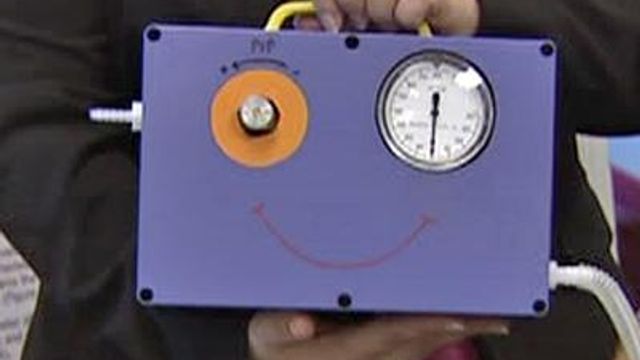Bioengineering students hope projects help patients
Bioengineering students at North Carolina State University and the University of North Carolina-Chapel Hill unveiled projects designed to help patients in a show at Research Triangle Park this week.
Posted — UpdatedN.C. State students began their projects by visiting and asking questions of clinicians at WakeMed.
"(They asked) What are your biggest problems? What takes you the most time? What costs you the most money? What gives you the biggest headache?" said Andrew Dimeo, a professor of biomedical design at N.C. State.
From students' research came Mr. Freeze, a training simulator for inducing hypothermia in sudden cardiac arrest patients. Another device helps elderly or disabled patients get safely into a bathtub. A different device lets patients slide from a mattress on a table into an MRI scanner, so no one needs to lift them.
The seniors work through the whole process of identifying a problem, designing a solution, building a prototype, testing and marketing. They must meet the federal Food and Drug Administration's quality regulations as if they were working for a real-world medical device company.
"Every year, they come up with something that we would have never suspected," Dimeo said.
WakeMed matches students teams with different departments and sponsors their projects. The hope, Dimeo said, is that each year there will be a few projects worthy of getting patents and developing further so they come into use for patients.
"It's just a real god opportunity for us to not only support work force development but to see life improve for our patients," said Susan Jackson, vice president and chief learning officer at WakeMed.
• Credits
Copyright 2024 by Capitol Broadcasting Company. All rights reserved. This material may not be published, broadcast, rewritten or redistributed.





